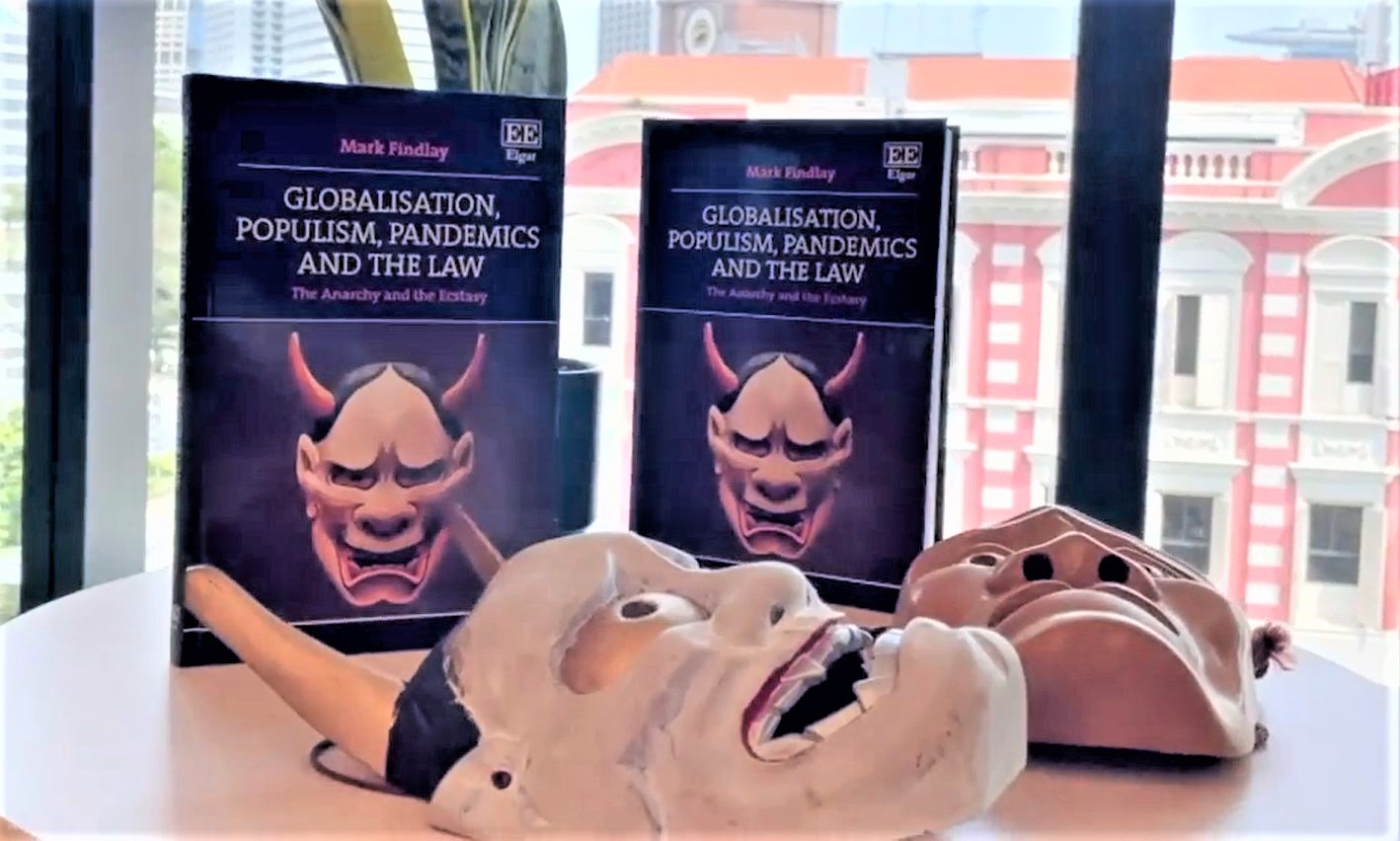
In times of global crisis, globalisation, populism and pandemics are interconnected in more ways than some are aware of. How does law become part of the problem instead of protecting the society? And how can it be capitalised towards better governance?
In his recently launched book “Globalisation, Populism, Pandemics and the Law”, Professor Mark Findlay, Director of the Centre for AI and Data Governance, confronts the myths surrounding globalisation and the advancing role for law as a change agent unburdened from its current market functionality. He argues that law has the new and urgent responsibility to confront the lack of resilience in free markets, to manage the forces that are both running and ruining the world. Chapters also engage with citizen-centric surveillance society to examine the dangers to personal data, individual integrity, and work-life quality from unregulated mass data sharing.
Prof Findlay answers questions surrounding globalisation and talks about advancing the role of law as a change agent unburdened by its current market functionality in an interview.
Why did you decide to write this book and why these 4 themes?
I was writing this book at a time when the world was in a crisis and that crisis has continued and I was interested to understand why globalisation was being blamed as the problem when in fact it could be part of the solution. Populism constantly was saying globalism was at fault, but pandemics on the other hand made us realise that global engagement was so important.
What is the significance of the mask in the book cover?
Law is a mask. Law in many respects, became part of the problem by focusing too heavily on private property and wealth creation and concealing those important values that are in the heart of law that are meant to protect society.
How and where do you think things have gone wrong in the world?
I think the reason for the change, the degeneration has been massive self-interest. The global economic and neo-liberalism currently focuses on wealth creation and short-term gain. The importance of long-term sustainability is sacrificed for the benefit of those who can make a fast profit.
Do you think that law has contributed to these problems and can it be part of the solution?
There is no doubt that law has sold out, law has become too focused on private property, commodities and markets and become a support for neo-liberalism. But that doesn’t always have to be so. There are many things behind law; principles behind law that are values that we need to keep in mind when we are moving towards a changed world.
Do you think that good change can come from experts or can the average person also play a part?
The only way we can move towards a better world is if we individually and collectively take responsibility. We rely too heavily on experts and professionals, and yet at the same time we have lost trust in these experts as well. In many respects we have to take responsibility as communities and individuals and move towards a world that better reflects the principles on which law is based; fairness, justice, and equity.
Can you describe a better future that you envision for the younger generation in 3 words?
Power for Tomorrow. I think it is imperative for young people to get involved in all aspects of the world which currently is in the state that it is in. To achieve that, young people have to change their values. We are seeing that now. Moving away from materialism and much more into collective good, sustainability and something which focuses more on the way in which we can change things, rather than simply repeating the mistakes that we have made in the past.
What can the younger generation do to contribute towards this?
I think it means a change in lifestyle, priorities, and the attitude that we cannot do much until we get older, until we get into a position of power. Change has to happen now, and if it doesn’t happen now, then what we’ll find out is that time will run out. If time runs out, then talking about change will be a waste of time.
Exciting and thought-provoking, this book will be critical reading for scholars and students in law, economics and governance interested in globalisation and crises, such as pandemics, as well as populist politics and anxiety governance.
"Globalisation, Populism, Pandemics and the Law" is available in both hardback and e-book from the below links:
https://www.e-elgar.com/…/globalisation-populism-pandemics-…
https://www.amazon.com/Globalisation-Populism-…/…/1788976843
